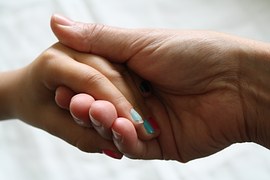AS PARENTS & TEACHERS |
|
FOR PARENTSWorkshops focused on parenting through Jewish values.
|
FOR TEACHERSProfessional development workshops designed for Hebrew School teachers, Family Educators, Early Childhood Educators and Jewish Teen Educators.
The Secret Recipe for Teaching
|
FOR BOTH
Noah's Art [Sic]: Sharing the Bible with Young ChildrenUsing the story of Noah as an example we study the text itself and then compare it to the versions in different children’s books. This serves as the basis for discussing both the teaching of Bible to young children as well as the power of art as midrash (interpretive reading).
Family Matters:
|
